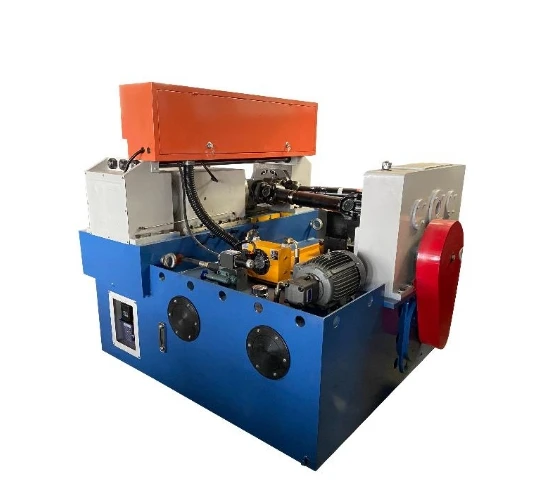
-
 Afrikaans
Afrikaans -
 Albanian
Albanian -
 Amharic
Amharic -
 Arabic
Arabic -
 Armenian
Armenian -
 Azerbaijani
Azerbaijani -
 Basque
Basque -
 Belarusian
Belarusian -
 Bengali
Bengali -
 Bosnian
Bosnian -
 Bulgarian
Bulgarian -
 Catalan
Catalan -
 Cebuano
Cebuano -
 Corsican
Corsican -
 Croatian
Croatian -
 Czech
Czech -
 Danish
Danish -
 Dutch
Dutch -
 English
English -
 Esperanto
Esperanto -
 Estonian
Estonian -
 Finnish
Finnish -
 French
French -
 Frisian
Frisian -
 Galician
Galician -
 Georgian
Georgian -
 German
German -
 Greek
Greek -
 Gujarati
Gujarati -
 Haitian Creole
Haitian Creole -
 hausa
hausa -
 hawaiian
hawaiian -
 Hebrew
Hebrew -
 Hindi
Hindi -
 Miao
Miao -
 Hungarian
Hungarian -
 Icelandic
Icelandic -
 igbo
igbo -
 Indonesian
Indonesian -
 irish
irish -
 Italian
Italian -
 Japanese
Japanese -
 Javanese
Javanese -
 Kannada
Kannada -
 kazakh
kazakh -
 Khmer
Khmer -
 Rwandese
Rwandese -
 Korean
Korean -
 Kurdish
Kurdish -
 Kyrgyz
Kyrgyz -
 Lao
Lao -
 Latin
Latin -
 Latvian
Latvian -
 Lithuanian
Lithuanian -
 Luxembourgish
Luxembourgish -
 Macedonian
Macedonian -
 Malgashi
Malgashi -
 Malay
Malay -
 Malayalam
Malayalam -
 Maltese
Maltese -
 Maori
Maori -
 Marathi
Marathi -
 Mongolian
Mongolian -
 Myanmar
Myanmar -
 Nepali
Nepali -
 Norwegian
Norwegian -
 Norwegian
Norwegian -
 Occitan
Occitan -
 Pashto
Pashto -
 Persian
Persian -
 Polish
Polish -
 Portuguese
Portuguese -
 Punjabi
Punjabi -
 Romanian
Romanian -
 Russian
Russian -
 Samoan
Samoan -
 Scottish Gaelic
Scottish Gaelic -
 Serbian
Serbian -
 Sesotho
Sesotho -
 Shona
Shona -
 Sindhi
Sindhi -
 Sinhala
Sinhala -
 Slovak
Slovak -
 Slovenian
Slovenian -
 Somali
Somali -
 Spanish
Spanish -
 Sundanese
Sundanese -
 Swahili
Swahili -
 Swedish
Swedish -
 Tagalog
Tagalog -
 Tajik
Tajik -
 Tamil
Tamil -
 Tatar
Tatar -
 Telugu
Telugu -
 Thai
Thai -
 Turkish
Turkish -
 Turkmen
Turkmen -
 Ukrainian
Ukrainian -
 Urdu
Urdu -
 Uighur
Uighur -
 Uzbek
Uzbek -
 Vietnamese
Vietnamese -
 Welsh
Welsh -
 Bantu
Bantu -
 Yiddish
Yiddish -
 Yoruba
Yoruba -
 Zulu
Zulu
Custom CNC Thread Rolling Machines for Precision Manufacturing Solutions
Understanding Custom CNC Thread Rolling Machines
In the realm of manufacturing, precision and efficiency are key factors that can determine the success of a business. One of the significant advancements in achieving these goals is the introduction of custom CNC (Computer Numerical Control) thread rolling machines. These machines have revolutionized the manufacturing process by allowing for the seamless production of high-quality threaded components, which are essential in various industries such as automotive, aerospace, and construction.
What is Thread Rolling?
Thread rolling is a cold forming process that creates threads on a metal part by deforming the material using hardened steel dies. This technique is favored over traditional cutting methods because it produces stronger threads due to the work hardening of the material, reduces material waste, and significantly improves the surface finish. Thread rolling is especially effective for long runs of parts, making it a preferred choice in high-volume production environments.
The Role of CNC Technology
CNC technology enhances traditional thread rolling by introducing automation and precision to the process. A custom CNC thread rolling machine is designed to perform repetitive tasks with high accuracy, reducing the likelihood of human error and the variability associated with manual operations. These machines utilize computer software to control the movement of the rolling dies, allowing manufacturers to produce complex thread patterns and configurations with ease.
Moreover, the custom aspect of CNC thread rolling machines means they can be tailored to meet specific production requirements. Whether a business needs a machine that accommodates different sizes of parts or one that can handle varying thread specifications, custom solutions provide the flexibility required to optimize production processes.
Benefits of Custom CNC Thread Rolling Machines
custom cnc thread rolling machine

1. Precision Engineering One of the most substantial advantages of custom CNC thread rolling machines is their precision. The use of advanced CNC technology ensures that components are manufactured to exact specifications, which is critical for industries that demand high levels of accuracy.
2. Increased Production Efficiency CNC machines can operate continuously with minimal downtime. This increased efficiency results in higher output rates, allowing manufacturers to meet the demands of large orders without compromising quality.
3. Versatility Custom CNC thread rolling machines can be programmed to produce a wide range of thread forms and sizes. This versatility makes them suitable for multiple applications, from standard screws and bolts to specialized fasteners used in unique assemblies.
4. Cost-Effective Production With reduced material waste, lower labor costs, and faster production times, custom CNC thread rolling machines can significantly lower the overall cost of manufacturing threaded components. This cost-effectiveness allows businesses to remain competitive in a demanding market.
5. Enhanced Surface Finish The cold forming process, combined with the precision of CNC technology, leads to superior surface finishes compared to traditional machining. Parts produced through thread rolling often require less finishing work, saving time and resources.
Conclusion
As industries continue to evolve, the need for high-quality threaded components will only grow. Custom CNC thread rolling machines offer a state-of-the-art solution for manufacturers seeking to enhance their production capabilities. With their precision, efficiency, and versatility, these machines not only improve the manufacturing process but also play a critical role in ensuring the integrity and reliability of the final products. By investing in custom CNC thread rolling technology, businesses can position themselves at the forefront of the manufacturing industry, ready to meet the challenges and demands of the future.
